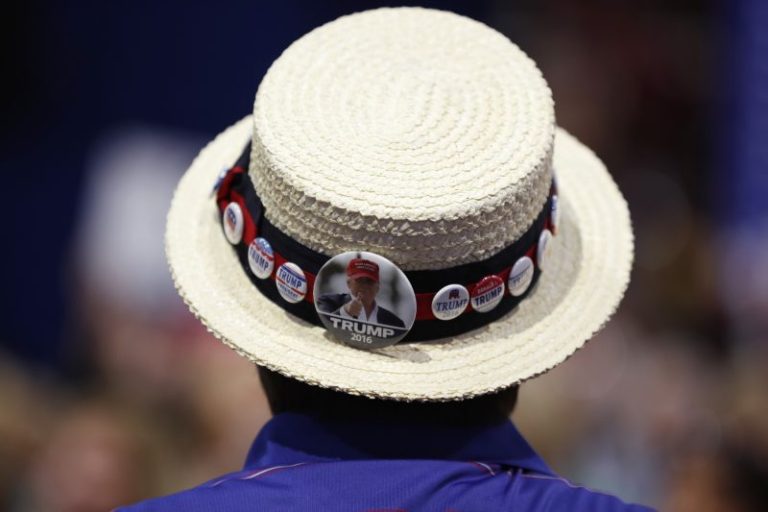Norman Thomas never served as president, though it wasn’t for lack of trying.
He was the Socialist Party’s candidate for the presidency in 1928, getting less than 1 percent of the national vote. Four years later, he ran again, faring better: More than 2 percent of U.S. voters backed his bid. But in 1936 he was back down under 1 percent, and in 1940, he fell under one-quarter of 1 percent. He didn’t do much better in 1944 or 1948.
That’s six bids earning fewer votes in total than Franklin D. Roosevelt earned in a single state in 1932. But Thomas kept running, failure to earn even a plurality of the vote notwithstanding.
Which brings us to Donald J. Trump.
On Tuesday, the former president announced his third presidential bid in the past seven years. The first one, you will recall, was successful. The second, less so. The third one might be less successful still, with there being no guarantee that Trump will earn the Republican Party’s nomination, much less somehow improve on his high-water mark of 47 percent of the vote in a general election. But that he’s trying is unusual in itself.
Since the dawn of the two-party era, there have been only two other former presidents who’ve sought reelection to the office some four years after leaving it: Teddy Roosevelt in 1912 and Grover Cleveland in 1892.
Roosevelt became president after the assassination of William McKinley in 1901 and was elected on his own in 1904. He’d made a commitment not to seek election again in 1908, but in 1912 he again sought the Republican nomination. Failing to get the GOP nod, he ran as a third-party candidate — and lost.
Perhaps that’s the path Trump, too, will follow: If he doesn’t get the GOP nomination in 2024, it’s easy to see him pushing for some sort of MAGA Party ticket. But the more likely precedent comes from the 1892 race.
Cleveland, you’ll recall, is the only president to serve two nonconsecutive terms. He was beaten by Benjamin Harrison in 1888; then beat Harrison four years later. But, as Cleveland biographer Troy Senik was quick to point out as the comparison to Trump started to gain traction, the two situations are not all that comparable.
First and foremost, Cleveland won the plurality of the vote in all three of the elections in which he ran. In other words, he got more votes than John Blaine, his opponent in 1884, and more than Harrison in both 1888 and 1892. It was just a quirk of the electoral college that gave Harrison his win the first time the two faced off.
In fact, it’s Harrison to whom Trump is most comparable. Both men won the presidency thanks to where their votes came in, not the quantity of them. Both then lost their bids for reelection. It’s just that Harrison, when asked to run again in 1896, declined to do so.
Harrison is one of more than 76 people since the Civil War to be on the general election ballot more than once. Should Trump get the GOP nomination in 2024, he’ll become one of 20 to have been on the ballot at least three times.
Most of those people, of course, are gadflies or perennial candidates who never had a shot. Do you remember seeing Earl Dodge’s name on the ballot? No? He also ran six times, beginning in the 1980s, as the candidate of the Prohibition Party. (He would have run seven times, had he not died in 2007.) But they aren’t all unknowns: Franklin D. Roosevelt, of course, ran four times. Eugene V. Debs ran five. And Richard M. Nixon was a three-timer.
But only Cleveland has a loss sandwiched between two wins. Nixon lost in 1960 before rebounding in ’68. Cleveland didn’t rebound so much as he overcame the boundaries of the electoral college.
If Trump gets the nomination in 2024, he could possibly, finally win the popular vote as he becomes the second president to serve two nonconsecutive terms. Or he could be the first former chief executive to lose two subsequent bids to serve as president.
Whatever happens, he does retain one distinction that he will hopefully keep as his own for the rest of history: He is the only former president whose tenure ended with an attempt to seize power undemocratically. If nothing else, he’ll always be able to point to that as his and his alone.

